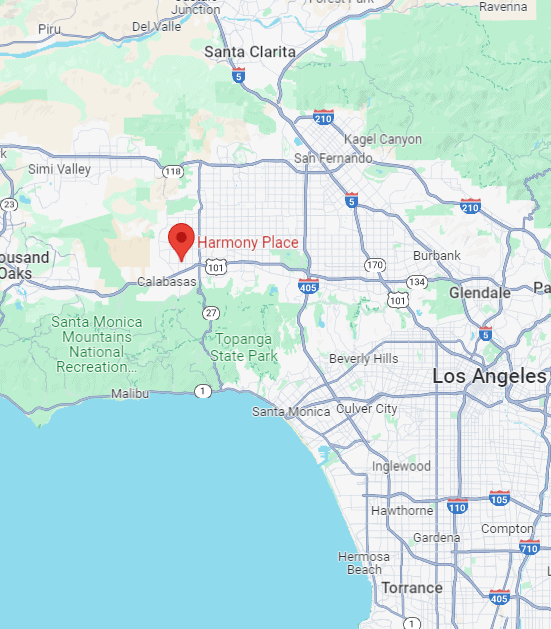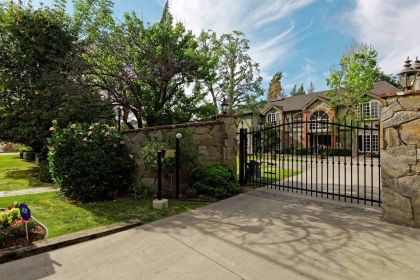How to Pay for Alcohol Rehab in Los Angeles, California | Affordable Ways to Pay for Alcohol Rehab
At Harmony Place, we understand that financing alcohol addiction rehab in Los Angeles, CA, can be challenging, so we provide clear, accessible options to help you pay for alcohol rehab and treatment. Our programs feature flexible payment plans, sliding-scale fees, and insurance support, ensuring that cost never hinders your path to recovery.
Our comprehensive approach to paying for alcohol rehab means you can explore every funding option available. Whether you leverage your insurance benefits, utilize government assistance, or choose a tailored payment plan, we are committed to making quality alcohol addiction rehab accessible to everyone in Los Angeles.
Various Ways to Pay for Alcohol Rehab Without Health Insurance in Southern California
You may be wondering how to pay for alcohol rehab without health insurance. If you’re seeking alcohol rehab in Southern California and do not have insurance, there are several alternative ways to cover rehab costs. These options can help you access necessary treatment and support, ensuring you receive the care you need to begin your recovery journey effectively.
Private Self-Pay Options for Alcohol Rehab Programs
When exploring private self-pay options for alcohol rehab programs, you have the flexibility to choose treatment that meets your specific needs and preferences. These programs typically offer personalized care in comfortable, supportive environments. You can opt for residential programs that provide 24/7 supervision and intensive therapy sessions or choose outpatient programs for more flexibility while still receiving structured treatment.
Private self-pay rehab centers often include holistic therapies, gourmet meals, and recreational activities, enhancing your overall treatment experience. By investing in a private alcohol rehab program, you prioritize your recovery and well-being with comprehensive support tailored to your journey toward sobriety.
Payment Plans With Alcohol Addiction Rehab
When seeking substance abuse recovery on a budget, payment plans offer a flexible way to manage the costs of treatment. Many facilities understand the financial strain of needing drug rehab without insurance and offer structured payment options that fit your budget. These plans typically allow you to spread the expense over time, making rehab accessible without immediate financial burden.
You’ll collaborate with the facility to establish a plan that works for you, whether monthly installments or customized arrangements based on your financial situation. Rehab payment plans ensure you can focus on your recovery journey without added stress about upfront costs. Contact Harmony Place at (855) 652-9048 to discuss available payment plans and find one that effectively supports your path to long-term sobriety.
Partner with Non-Profit Organizations and Get Scholarships for Alcohol Treatment Programs
You can also find out how to get help paying for alcohol rehab by partnering with non-profit organizations. They can provide opportunities to secure scholarships for alcohol treatment programs. These organizations often collaborate with rehab facilities to offer financial assistance based on need and merit. Scholarships for rehab programs can cover some or all of the treatment costs.
By applying for this non-profit addiction treatment support, you receive crucial support for your recovery journey and benefit from the resources and networks these non-profits provide. Explore different non-profit partnerships and their scholarship opportunities to find a program that aligns with your goals and circumstances. Taking advantage of these resources can ease your financial burden and enable you to focus wholeheartedly on achieving sobriety and wellness.
Sliding Scale Fees With Alcohol Treatment Center
When seeking alcohol treatment, sliding-scale fees offered by treatment centers can provide alternative financing for rehab tailored to your financial situation. These income-based fees ensure the cost doesn’t hinder your access to necessary rehabilitation services. Typically, the scale is determined through a financial assessment considering income level, household size, and expenses.
This approach allows you to receive comprehensive care without undue financial burden, making quality treatment accessible to individuals from diverse economic backgrounds. Contact alcohol treatment centers that offer sliding scale fees to discuss how this option can support your path to recovery while accommodating your financial circumstances effectively.
EAPs or Government Assistance Programs for Alcohol Rehab
If you’re exploring options for alcohol rehab, consider Employee Assistance Programs (EAPs) or government assistance programs that may provide financial support. EAPs offered by employers often include benefits that cover substance abuse treatment, including alcohol rehab services. These programs can help offset costs and make treatment more affordable.
Additionally, government assistance for rehab is available. Medicaid or state-funded programs may offer coverage for rehab services based on eligibility criteria. You may also be able to seek grants for addiction treatment. Applying for these programs can significantly reduce the financial burden of seeking treatment. Contact your employer’s HR department or local government agencies to explore EAPs and government assistance options available to you for alcohol rehab.
Fundraising via Crowdfunding and Local Community Efforts
Consider fundraising through crowdfunding and local community efforts as viable options to support your alcohol rehab journey. Crowdfunding platforms allow you to create campaigns where friends, family, and community members can contribute financially to your treatment expenses. Share your story and goals openly to garner support and raise funds effectively.
Engaging with your local community through events, fundraisers, or outreach campaigns can generate awareness and financial aid for substance abuse rehab. Many communities rally behind individuals seeking recovery, offering donations, resources, and moral support. By harnessing these avenues, you can alleviate the financial burden of rehab costs and receive the encouragement needed to embark on a successful path to sobriety.
Support From Local Network of Friends, Family, and Community
When facing alcohol addiction, tapping into the support of your local network — friends, family, and community — can be instrumental in your recovery journey. Contact loved ones and explain your situation honestly, sharing your need for emotional and possibly financial support for rehab. Often, friends and family are eager to help and can provide encouragement, understanding, and even assistance with fundraising.
You can also involve your community through local events, support groups, or social media campaigns that can garner broader support. Communities often rally behind those seeking recovery, offering financial contributions and valuable emotional backing. Embracing this network can provide the strength and resources needed to pursue treatment confidently and embark on a path toward lasting sobriety.
Pay for Alcohol Addiction Treatment With COBRA
If you’re considering alcohol addiction treatment and have recently lost your job, the Consolidated Omnibus Budget Reconciliation Act (COBRA) may be a viable option to maintain health insurance coverage. COBRA allows you to continue under the health insurance plan offered by your former employer for a limited time, typically up to 18 months.
This coverage can include benefits for substance abuse treatment, such as alcohol rehab programs. COBRA can be expensive since you’re responsible for the entire premium, but it ensures continuity of care without interruptions. Contact your former employer’s benefits administrator to discuss COBRA eligibility, costs, and coverage details, ensuring you have the necessary support to pursue alcohol addiction treatment during this transitional period.

Free Callback on How to Pay for Alcohol Rehab
What Is the Value of Paying for a Private Alcohol Rehab Program?

Choosing to pay for a private alcohol addiction rehab program provides significant benefits. You’ll receive personalized treatment, enjoy greater privacy, and benefit from high-quality amenities. This investment ensures you have access to specialized care and a comfortable, supportive environment, all necessary for a successful recovery journey.
Shorter Admission Wait Times for Alcohol Rehab
Opting for a private alcohol rehab program often means shorter admission wait times compared to public facilities. This allows you to start recovery promptly and receive the crucial support you need without delay. Private centers prioritize individualized care, ensuring you receive personalized treatment that meets your specific goals.
With a streamlined admission process, you can access comprehensive services and amenities to enhance your recovery experience. This approach enables you to focus on healing and progress toward sobriety sooner, supported by a team of professionals committed to your well-being. Choosing addiction counseling for alcohol abuse ensures you receive timely and effective care to begin your path toward a healthier, substance-free life.
Personalized Alcohol Addiction Treatment Plans
In a personalized alcohol addiction treatment plan tailored to you, every aspect revolves around your unique needs and circumstances. This approach starts with an assessment by alcohol addiction specialists to understand your addiction’s triggers and any co-occurring disorders. A team then crafts a treatment strategy that may include alcohol detoxification, behavioral therapy for alcohol addiction, and alcohol addiction support groups.
Your progress is continuously monitored, and adjustments are made as needed to ensure effectiveness. This personalized plan not only targets addiction but also fosters overall well-being, addressing physical, mental, and emotional aspects. The treatment plan maximizes your chances of sustained recovery by centering on your challenges and strengths, providing the tools and support necessary for a healthier future.
Comfy Alcohol Residential Treatment Accommodations
Choosing a comfortable residential alcohol rehab ensures your well-being during recovery. These facilities, like Harmony Place Addiction Recovery, offer serene and supportive environments designed to feel like home. You’ll have access to cozy, private rooms or suites, providing a peaceful space to reflect and heal. Amenities such as nutritious meals, recreational activities, and therapeutic spaces contribute to overall wellness.
Professional staff is available around the clock to provide assistance and support as you navigate your journey toward sobriety. Comfortable inpatient rehab for alcohol addiction not only enhances your physical comfort but also creates a conducive atmosphere for personal growth and recovery. By choosing a residential treatment center that prioritizes your comfort, you can focus fully on healing and rebuilding a healthy, substance-free life.
Greater Privacy and Confidentiality for Alcohol Rehab
Opting for alcohol rehabilitation centers that prioritize greater privacy and confidentiality during alcohol rehab ensures your comfort and security throughout the recovery process. These centers offer private rooms or suites where you can focus on recovery without distractions. Confidentiality is strictly maintained, respecting your personal information and treatment progress.
Professional staff are dedicated to creating a safe space where you can explore and address the root causes of your addiction with discretion. By choosing a rehab center that values privacy, you can confidently participate in therapy sessions and group activities, knowing that your personal journey is respected and protected. This environment allows you to fully engage in the recovery process, promoting long-lasting positive changes in your life.
Access to Advanced Alcohol Rehab Techniques and Therapies
Choosing a facility that provides access to advanced alcohol rehab techniques and therapies ensures you receive cutting-edge treatment for your addiction. These techniques may include evidence-based therapies like cognitive behavioral therapy (CBT), dialectical behavior therapy (DBT), and motivational interviewing. Additionally, you may benefit from innovative approaches such as neurofeedback, equine therapy, or mindfulness practices tailored to enhance your recovery journey.
Expert clinicians and therapists guide you through these therapies, helping you understand and address the underlying causes of your addiction while equipping you with practical coping strategies. By accessing these advanced techniques, you can optimize your chances of long-term sobriety and holistic well-being. Choosing an inpatient or outpatient alcohol rehab facility that offers such comprehensive and innovative therapies empowers you to achieve lasting recovery and regain control of your life.
Ideal Staff-to-Patient Ratios
Ideal staff-to-patient ratios in alcohol rehab ensure you receive the attention you need throughout your recovery journey. With lower ratios, professionals can dedicate more time to understanding your unique needs, providing individualized care plans, and offering timely interventions when necessary. This close monitoring allows staff to track your progress closely, adjusting treatment approaches as needed to maximize effectiveness.
Moreover, a lower staff-to-patient ratio fosters a supportive and therapeutic environment where you can feel heard and valued. Whether during therapy sessions, medical consultations, or daily activities, having ample staff ensures your safety, comfort, and overall well-being are consistently prioritized. Choosing a rehab facility with optimal staff-to-patient ratios enhances your treatment experience, promoting a more personalized and effective path to sobriety.
Freedom in Selecting an Alcohol Rehab Treatment Program
Choosing an alcohol rehab treatment program that offers you freedom in selection ensures your journey to recovery aligns with your personal needs and preferences. This flexibility lets you explore various treatment options, such as residential or intensive outpatient treatment (IOP), depending on what best suits your schedule and the level of support required.
You can participate in therapies that resonate with you, whether it’s cognitive behavioral therapy (CBT), dual diagnosis treatment, or holistic treatments like yoga and art therapy. This freedom extends to choosing a facility like Harmony Place Treatment Center that aligns with your values and comfort, whether it’s a serene countryside retreat or a bustling urban center. By having choices, you can actively engage in your recovery, making decisions that empower and motivate you toward long-term sobriety and a healthier lifestyle.

Private Alcohol Rehab Facility in Los Angeles That Accept Insurance Coverage for Treatment
Harmony Place Addiction Recovery has several rehab facilities in the Los Angeles area that accept insurance. Harmony Place, 23041 Hatteras St., Woodland Hills, CA 91367, and Harmony Place East, 22913 Burbank Blvd., Woodland Hills, CA 91367, offer residential services. Valley Restoration Center, 22900 Ventura Blvd., Suite 314, Woodland Hills, CA 91364, specializes in outpatient care.
How to Find a Private Pay Alcohol Rehab Near Los Angeles
If you’re thinking about how to pay for alcohol rehab in Los Angeles and are considering private pay, navigating the options effectively ensures you find the best care for your recovery journey. From verifying insurance coverage to researching facilities and consulting with professionals, each step is crucial in identifying a facility that aligns with your recovery goals.
- Check with Your Health Insurance Provider: Even if you plan to pay privately, your insurance might cover aspects of treatment. Contact your insurance company for a list of approved private rehab facilities in Los Angeles.
- Search Using Google Maps: Use Google Maps to locate rehab centers nearby. Look up terms like “Ways to pay for alcohol rehab in LA,” “How to pay for alcohol rehab Los Angeles,” or “ways to pay for drug rehab,” to find options in your area.
- Ask for Referrals: Consult healthcare professionals such as your primary care physician, mental health provider, or addiction counselor. They can recommend reputable and affordable addiction recovery facilities based on your specific needs.
- Explore Local Resources: Check with community health organizations, addiction support groups, or recovery advocacy groups. They often have information about private pay treatment facilities and methods to pay for alcohol rehab in Angeles.
- Review Facility Websites: Visit prospective centers’ websites to review their treatment approaches, amenities, staff qualifications, and cost structures. Focus on centers like Harmony Place that offer personalized treatment plans and specialized therapies.
- Read Reviews and Testimonials: Look for feedback from former patients and families on platforms like Google Reviews, Yelp, or specialized recovery websites. This can provide insights into the quality of care at each facility.
- Contact Rehab Centers: Once a list is narrowed down, contact the facilities. Ask about their treatment programs, rehab costs, options for paying for rehab without insurance, and any other relevant details. This will help you assess their suitability and responsiveness.
- Verify Their Licensing and Accreditation: Ensure each licensed facility is accredited by reputable organizations like the Joint Commission or CARF. This will help ensure they meet high standards of care and safety.
- Schedule a Tour: Before deciding on a facility, arrange to visit or take a virtual tour of the ones you’re considering. This allows you to experience the environment, meet staff, and ask additional questions to make an informed choice.
How Much Does Alcohol Rehab Cost Without Health Insurance Coverage in Los Angeles, CA
The cost of rehab for alcohol addiction in Los Angeles without insurance can vary depending on the facility you choose and the care you require. On average, outpatient programs may range from $5,000 to $10,000 for a three-month program, while residential treatment typically starts around $10,000 per month and can potentially exceed $30,000 at luxury facilities.
These costs cover medical detox, therapy sessions, accommodations, meals, and additional amenities. Many rehab centers offer payment plans, sliding scale fees based on income, scholarships, or financing options to help manage expenses. Contact Harmony to discuss specific costs, payment options, and any available financial assistance to ensure you can access the necessary treatment for alcohol addiction in Los Angeles.
What Is a Private Pay Alcohol Rehab Treatment Center?
A private pay alcohol rehab treatment center provides personalized and confidential alcohol addiction recovery programs for people facing alcohol addiction. Private facilities typically offer luxurious accommodations and higher privacy than public or government-funded centers. You’ll benefit from tailored treatment plans designed to address your needs and goals in a serene and supportive environment.
These centers, like Harmony Place, often have a higher staff-to-patient ratio, which allows you to receive more individualized attention and comprehensive care. Additionally, amenities such as gourmet meals, holistic therapies, and recreational activities may be available to enhance your overall well-being during alcohol addiction treatment. Choosing a private alcohol abuse treatment ensures you receive the utmost comfort and specialized treatment to support your journey toward sobriety.
Before You Pay for Alcohol Rehab, How Do you Get Admitted?
Wondering about how to get into alcohol rehab in Los Angeles? Navigating entry into a treatment program for alcohol addiction in Southern California involves understanding how the admissions process works and preparing for assessments to begin your journey toward recovery.
Recognize the Need for Alcohol Treatment
Recognizing the need for alcohol treatment is the first step in your journey to recovery. Acknowledge signs such as alcohol withdrawal symptoms, increased tolerance, and disruptions in personal and professional life. Reflect on how alcohol use affects your health and relationships. Seek support from trusted individuals, such as family, friends, or healthcare professionals, who can provide objective perspectives.
Consider the long-term consequences of untreated addiction and the benefits of seeking professional help. Once you acknowledge you need treatment, explore alcohol rehab options that align with your goals and preferences.
Research Alcohol Treatment Programs and Consult With Professionals
When researching alcohol treatment programs, begin by exploring facilities like Harmony Place Treatment Center and their offerings, such as residential or outpatient programs, therapy modalities, and alcohol relapse prevention. Consult with professionals like counselors or primary care providers who can provide insights and recommendations based on your needs. They can help assess your addiction and suggest appropriate treatment options.
Use reputable resources such as online reviews, testimonials, and accreditation statuses to evaluate program effectiveness and patient satisfaction. Gather information on program costs, insurance coverage, and available financial assistance. By thoroughly researching and consulting with professionals, you can make a choice that best supports your journey to recovery.
Assess Various Payment Options for Alcohol Rehab
When assessing payment options for alcohol rehab, explore several avenues to determine the best fit for your financial situation. Contact rehab facilities to inquire about insurance coverage and whether they accept your provider. Investigate if they offer sliding scale fees based on income or payment plans to spread out costs over time.
Research scholarship opportunities or grants from non-profit organizations that support addiction treatment. Consider crowdfunding campaigns or local community fundraising efforts to supplement expenses. Evaluate your ability to pay out-of-pocket and explore financing options if needed. By exploring these various payment avenues, you can find a solution that makes alcohol rehab costs more feasible while ensuring you receive the necessary support to begin your journey toward recovery effectively.
Contact Alcohol Rehab Facilities / Programs and Complete Intake
Contact alcohol rehab facilities or programs directly to initiate the intake process. Call or email them to inquire about their services, admissions criteria, and availability. Complete any required intake forms or assessments they provide, which may involve detailing your medical history, addiction background, and treatment goals.
Be prepared to discuss your insurance coverage or payment options during this initial contact. Once intake procedures are completed, facilities will guide you through the next steps, including scheduling an initial consultation or assessment. Taking these proactive steps ensures you start on the path to recovery with a clear understanding of the treatment process and available support.
Prepare for Alcohol Treatment and Enter Medical Detox (If Required)
As you prepare for alcohol treatment, prioritize your health and well-being by considering medical detox if necessary. Consult with healthcare professionals to determine if alcohol detox is needed to safely manage withdrawal symptoms. Prepare mentally and physically for this phase by following guidelines provided by your treatment facility, such as abstaining from alcohol and staying hydrated.
Pack essentials for your stay, including comfortable clothing and personal items. Upon entering medical detox, expect to be medically supervised to ensure your safety and comfort. Embrace this critical step toward sobriety with determination and openness to the treatment journey ahead.
Engage in Alcohol Treatment Programs
Engaging in an alcohol treatment program is a pivotal step in your journey toward recovery. Participate actively in therapy sessions tailored to address the root causes of your addiction. Embrace various therapeutic modalities such as cognitive behavioral therapy (CBT), group counseling, and holistic treatments to foster holistic healing. Commit to the program’s structured schedule and guidelines, which may include educational sessions, relapse prevention strategies, and wellness activities.
Use support networks within the program to connect with people with similar experiences and goals. Embrace the opportunity to learn coping mechanisms and skills that empower you to navigate challenges without turning to alcohol. By immersing yourself fully in the treatment process, you pave the way for lasting sobriety and a renewed well-being.
Prep for Aftercare; Develop a Plan With Support Network
As you prepare for aftercare following alcohol addiction treatment, develop a comprehensive plan with your support network to sustain your sobriety. Collaborate with healthcare professionals and counselors to outline personalized strategies for maintaining recovery. Identify potential triggers and establish coping mechanisms to navigate challenges effectively.
Engage in ongoing therapy, support groups, or workshops that reinforce positive behaviors and provide ongoing encouragement. Use resources like recovery centers or peer support programs to stay connected and accountable. Communicate openly with family and friends about your goals and seek their understanding and encouragement. Proactively planning for aftercare and leveraging your support network strengthens your commitment to long-term sobriety and ensures a smoother transition into a healthier lifestyle.
Start Treatment Today: How to Pay for Rehab at Harmony Place
You deserve access to quality care. Harmony Place in Los Angeles offers multiple ways to pay for addiction treatment — including financing, insurance coverage, and private payment options. Learn how to cover your recovery costs and take the next step today.
Statistics and Info on Paying for Private Alcohol Rehab Treatment in Los Angeles
According to the 2022 National Substance Use and Mental Health Services Survey by the Substance Abuse and Mental Health Services Administration (SAMHSA), private non-profit organizations operated 50% of treatment facilities nationwide and served 46% of all clients. Private for-profit entities managed 41% of facilities and treated 45% of clients.
There were 7,757 facilities nationwide dedicated solely to alcohol abuse treatment, while 9,037 facilities treated both alcohol and other substance abuse. In California, 709 rehab facilities treated clients facing alcohol abuse only, and 868 treated clients with both alcohol and drug abuse issues.
Other notable statistics, according to the National Center for Drug Abuse Statistics:
- California ranks first for the highest number of alcohol-related deaths in the U.S.
- 6% of those over 18 in California binge drink at least once a month
- 15,443 annual deaths, on average, in California can be attributed to excessive alcohol use
- 4% of the deaths attributable to excessive alcohol use are from Alcohol Use Disorder (AUD) and other chronic causes


















